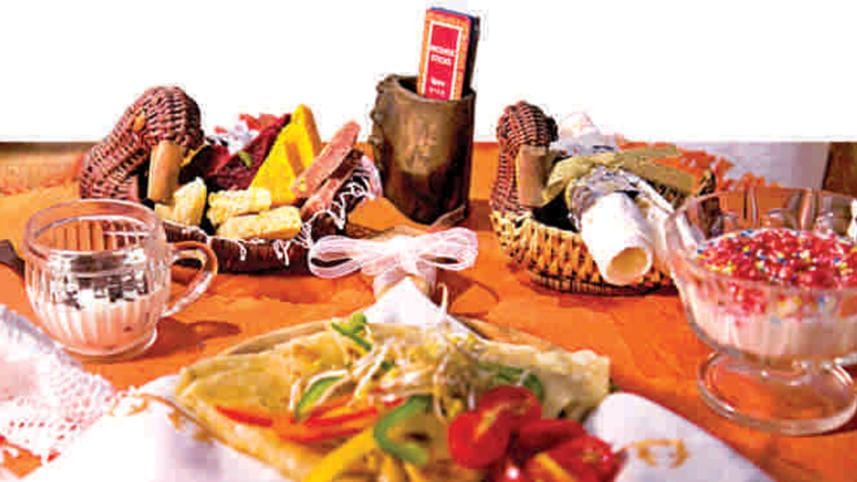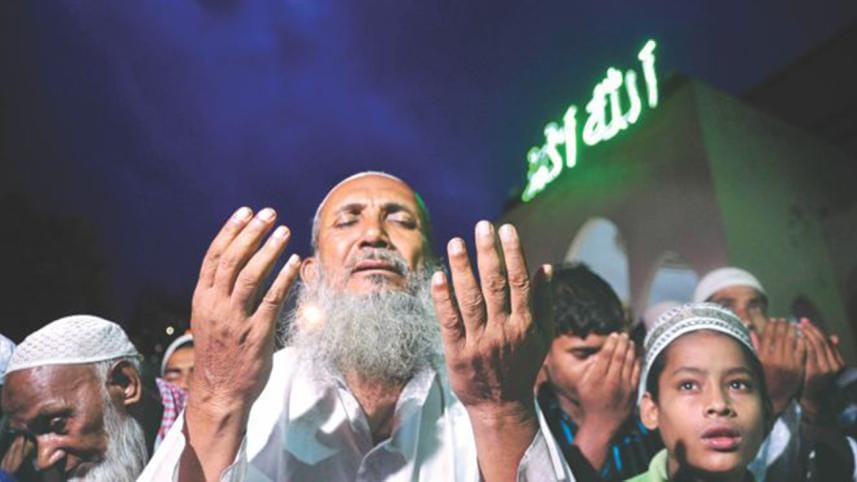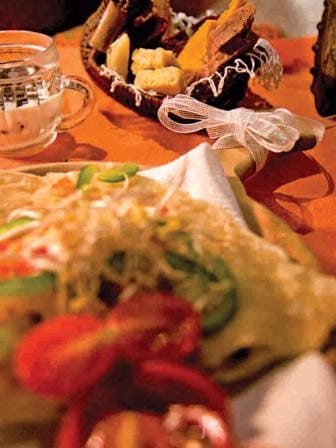A step closer...

For Fakhruzzaha Begum preparations for Shab-e-Barat start from early in the morning. An octogenarian, she still actively supervises the cooking associated with the observance of the auspicious night. From the ubiquitous halwa to savoury and meat dishes, the range of items prepared at her household is elaborate.
Even 10 years back, she would play an active role in the cooking, which her ailing health no longer permits. She now sits on the chair placed at the doorstep of the kitchen and directs her aides. Fakhruzzaha still determines the proportions of spices that go into the cooking pots, the amount of spices and condiments now a mere precision from memory.

Zuwaeriya, in her twenties, recollects her childhood memories of Shab-e-Barat. "My grandmother would take a shower after the Maghrib prayer and wear a white cotton sari. My dadi, Fakhruzzaha Begum, was widowed at an early age and she has worn only white ever since.

"Once the cooking was over, we would go around the neighbourhood distributing the food. After this was done she would direct us to take showers and join her for a night vigil that would go deep into the night and end at the break of dawn" Zuwairiya fondly remembers.
For every person in their twenties and thirties, this would be a familiar recollection of Shab-e-Barat. Prayers, recitations – these would be the essential ingredients for a spiritually uplifting night. "But food also played a very important role in the observance of the day," Mustafa, now a software analyst working abroad, said.
"I haven't spent Shab-e-Barat in Bangladesh for a long time, but I am being told that things have changed a lot in Bangladesh. And people tend not to prioritise the night of mid-Sha'aban" he said.
Sharing of food strengthened the bonds between family, friends and neighbours. This was one of the prime teachings of the occasion. It was considered anti-social if not rude to return a platter of halwas from the neighbour empty. "I miss this the most" said Zuwaeriya.
Although elaborate meals were prepared, many of the elderly of the family, used to fast on the 15th of Sha'aban. "It was considered a preparation for the coming month of fasting that is Ramadan" Mustafa believed. Visiting the grave was another key step in the observance of the auspicious night. "It would bring us closer to Allah and be a reminder that death is imminent and life is only a transition" he said.
Amongst the other vanishing traditions, there would be the fireworks – the 'moricha', the 'tarabati' and the 'chocolate bomb'. Although many might be unaware of, fireworks on Shab-e-Barat was, and still is, a criminal offence. The police would even arrest people found guilty of carrying out fireworks.
"I was even jailed for a night" Mustafa smirked.
Irrespective of the recent decline in the grandeur of the observance, thousands still flock to the mosque for a soulful prayer. As the devotees raise their hands in munajat, the sobriety of Shab-e-Barat reaches a new level and spiritually we are one step closer to our Lord.
 For all latest news, follow The Daily Star's Google News channel.
For all latest news, follow The Daily Star's Google News channel.
Comments